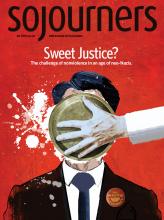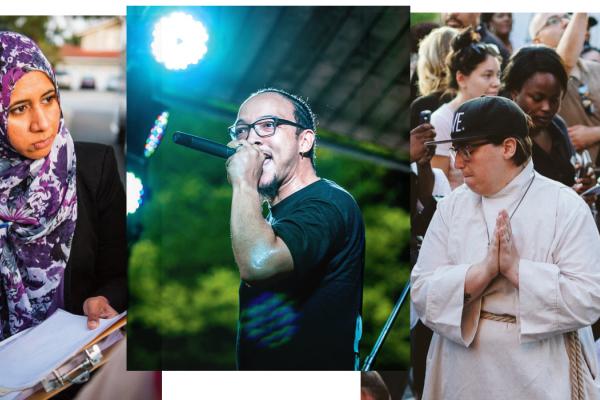MANY PEOPLE TALK about the injustices in the world but do nothing to rectify them. This can’t be said about the following five leaders—pastors, activists, lawyers, businesspeople, and artists—who Sojourners will recognize as “movement honorees” at the June 13-15 Summit 2018. These innovators are doing what Jesus did: taking God’s vision of the world and spurring others toward that ideal. Rev. Brittany Caine-Conley
Rev. Brittany Caine-Conley
“I learned pretty early about myself,” Caine-Conley told Sojourners, “that the concepts of justice and righteousness were really important concepts to me.”
Cue Aug. 12, 2017. While much of the nation watched from afar the racially charged violence in Charlottesville, Caine-Conley encountered the physical threats in person as she protested the white nationalist rally in her city. Caine-Conley and other protesters were shoved by supporters of the Unite the Right rally. And the car that a Nazi sympathizer plowed—apparently on purpose—into a crowd of protesters, killing 32-year-old Heather Heyer, also injured an affiliate of Congregate Charlottesville, the local faith-based social justice network Caine-Conley, United Church of Christ minister, helped organize.
“It was the most horrible thing I’ve ever experienced,” Caine-Conley said to Vox about seeing the wounded, who were lying in the street in the car’s wake.
And yet Caine-Conley believes it is her duty to be wherever tragedies like this happen—to put herself in harm’s way.
Read the Full Article

